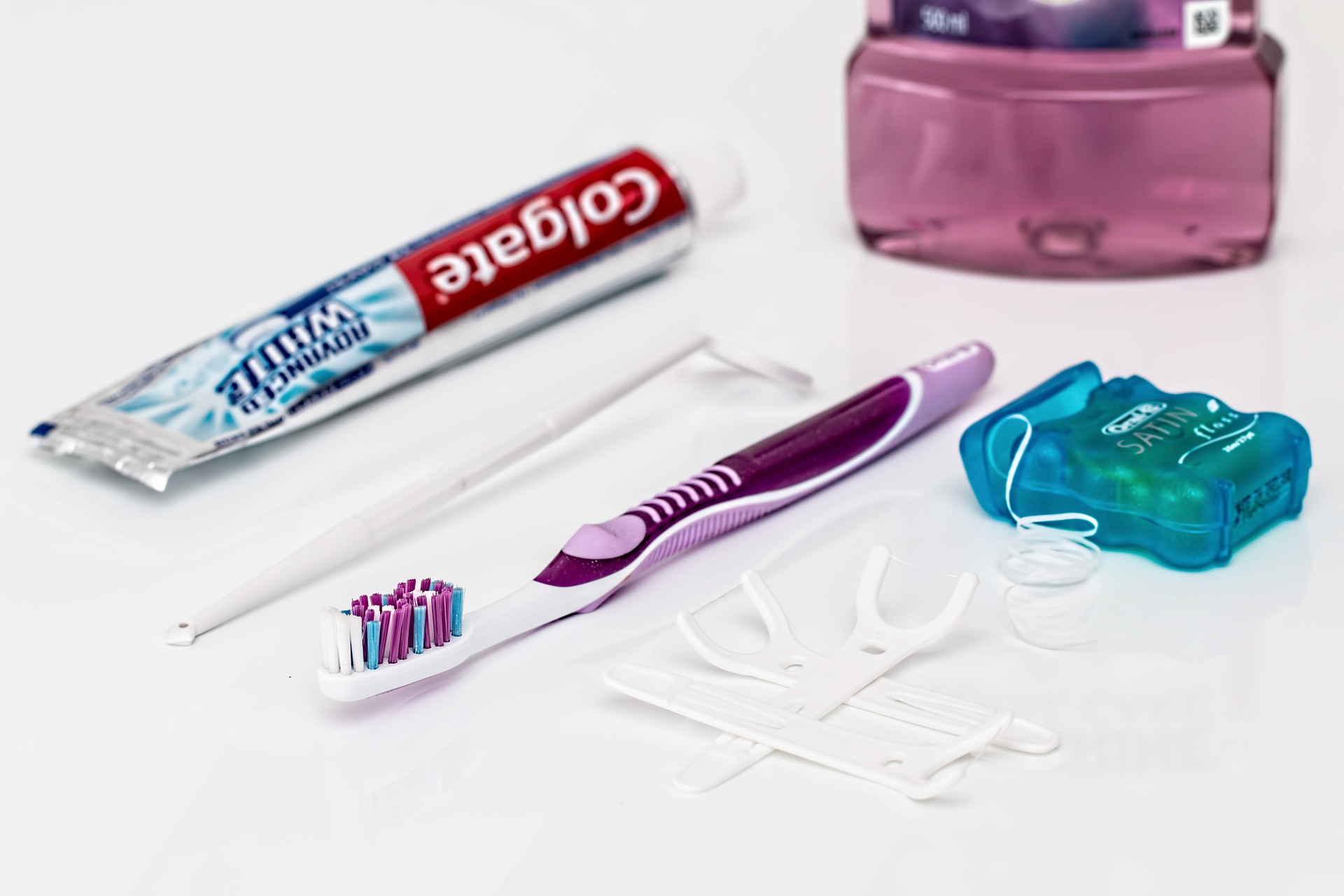
Choosing a toothpaste is as important as the need to wash your teeth after every meal. The variety available on the market is high, but the choice should always be on toothpastes with ingredients that do not cause any health risk. Avoid, for example, Triclosan, Fluor or Mint, because according to many scientists and researchers they are enemy substances of our organism.
Since 2000 there have been suspicions and concerns about the use of Triclosan. The risk? This substance may cause changes in the hormonal system, in particular in the thyroid gland, in the immune system that is regulated by the Thymus gland, stimulates antibiotic resistance and also be able to trigger degenerative diseases.
The pressure from entities such as the US Natural Resources Defense Council and the consumers, led Colgate-Palmolive to withdraw Triclosan from its soaps in 2010, but it was not until the end of January 2019 that they decided to eliminate this chemical compound of their one best-selling toothpaste in the world, Colgate Total. The multinational then presented a new product, through a strong marketing action, justifying innovation with the result of years of research. The truth is that Colgate Total represents an annual revenue, achieved worldwide, of 2.6 billion euros, that is, it’s a star product of the multinational.

The giant Colgate-Palmolive, however, continues to state that its products have been evaluated and approved by the authorities (North American and European) and are therefore safe for consumers. A strong position that experts say is intended to prevent courts from being clogged with lawsuits such as the case of manufacturers of “talcum powder” or Monsanto (with the Roundup pesticide), where compensation goes up with each passing month.
In the United States, the Food and Drug Administration (FDA) decided in 2016 to ban 19 chemical ingredients, including triclosan, from antibacterial soaps, and has since publicly assumed that it is developing new triclosan analysis’ in toothpastes and their risks to the Human Being.
In Europe, the last decision of the European Commission on triclosan is that the triclosan should not be used in personal hygiene products for human beings, but it is allowed to be used in cosmetic products such as toothpaste, deodorants, nail products, etc. (read the document here).
In Portugal, Infarmed analyzed in 2017 the quality of 76 oral hygiene products, including 67 toothpaste bottles, and concluded that they all had lower levels than the authorized maximums, so they are legal (read the statement).
The truth is that the triclosan is a chemical compound that is present in more than 2000 personal care products – for example, liquid soaps, toothpaste, mouthwash, deodorants and moisturizing creams – and as the European authorities decide not to confront the lobby of giants like Colgate-Palmolive, it’s up to consumers to decide whether they want to remain guinea pigs of these multinationals.

What about Fluorine?
Fluorine is a chemical element, aluminum residue, commonly used as a “star ingredient”‘ in toothpastes under the slogan “Fluor enhances the enamel”. However, it is important to disclose that this substance is harmful to the Human Being. According to many researchers, fluoride causes thyroid imbalances, calcifies the pineal gland (considered as the glands chief), develops cardiac stresses, affects the bones, slows the speed of reaction, promotes degenerative diseases or potentiates the Alzheimer’s onset.
Many tranquilizers and sedatives such as Prozac or Valium contain fluoride, and in many countries, such as Portugal, fluoridation of public water is permitted. In Germany, Austria, Belgium, France, the Netherlands, Norway, the Czech Republic, China or Japan, it is forbidden to add fluoride to drinking water.
The World Health Organization (WHO) has set the maximum value of 1.5 milligrams of fluoride per liter of drinking water, but there are researchers who consider that from 0.4 milligrams of fluoride per liter of water causes sensory and mental functions slow.

Fluoride ingestion in many Human Beings is through toothpaste, water and in many foods (vegetables, meat, fish), which causes that the ingested value can cause relevant harmful effects.
Mint
Mint is another of the ingredients used in toothpastes and is harmful because it opens gaps in energy frequencies, deregulating and separating the energy flow inherent in each vibrating vortex of the subtle bodies.
Fluoride, Triclosan and Mint, among other substances, are destabilizing agents of the whole glandular system that causes interaction imbalances between the systems (immune, hormonal, nervous and sanguine), between meridians and their organs, between vortexes of subtle bodies, chakra vortexes, the pyramid of the body, the double pyramid of the soul, and the pyramid of the spirit. For those who want to get rid of these substances, the solution is to use, for example, toothpaste without fluoride, mint or triclosan and there are many on the market at affordable prices or you can also make your own toothpaste. These types of toothpaste are also beginning to be recommended by dentists, particularly those without fluoride. Homeopathic laboratories do not use either fluorine or mint as they are aware that these substances negate the effect of any homeopathic treatment.
The choice is in our hands.
This text is an awareness. According to the season of the year and the moment in which you are, it is up to each one to feel if you should consume these products. The dosage and frequency depends on the nature and physical condition of each Human Being.
Reinforce your awareness in:
Colgate Total without Triclosan
Colgate withdraws controversial Triclosan of its toothpaste star
Colgate toothpaste accused of causing cancer will be renewed
Yes, there are chemicals in toothpaste and shampoos that affect health




